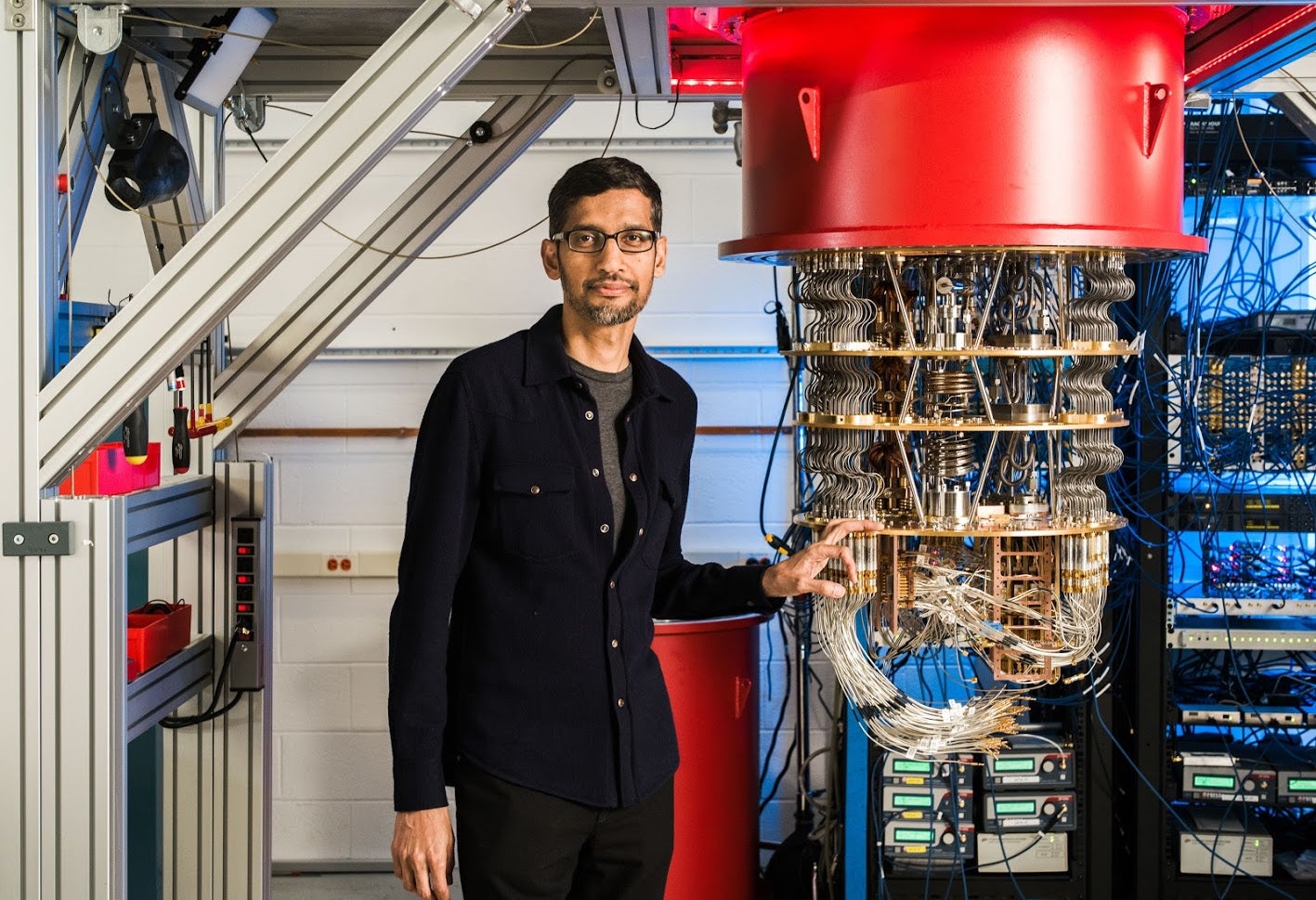
Google and Alphabet CEO Sundar Pichai today reaffirmed the need to regulate artificial intelligence (AI) in a discussion at the World Economic Forum Annual Meeting in Davos, Switzerland.
Pichai, who was interviewed by Klaus Schwab, founder and executive chairman of the World Economic Forum, argued that AI would ultimately have a greater impact than electricity, but also had significant potential for damage.

Access deeper industry intelligence
Experience unmatched clarity with a single platform that combines unique data, AI, and human expertise.
His comments follow a widely covered article in the Financial Times, published earlier this week, where Pichai said that it was “too important not to” impose regulation.
“I think we need a common framework by which we approach AI,” said Sundar Pichai.
“AI is one of the most profound things we are working on as humanity; it’s more profound than fire or electricity or any of the other bigger things we have worked on. It has tremendous positive sides to it, but it has real negative consequences.”
He highlighted facial recognition, which has raised growing concerns over inaccuracy and mis-use in the last few months, as an example of an AI application with such a duality.

US Tariffs are shifting - will you react or anticipate?
Don’t let policy changes catch you off guard. Stay proactive with real-time data and expert analysis.
By GlobalData“When you think about technologies like facial recognition, it can be used to benefit, it can be used to find missing people, but it can be used for mass surveillance,” he said.
“As democratic countries with a shared set of values, we need to build on those values and make sure when we approach AI, we are doing it in a way that serves society. And that means making sure AI doesn’t have bias, that we build and test it for safety.
“We make sure that there is human agency, that it’s ultimately accountable to people.”
Sundar Pichai: AI is like climate change
Sundar Pichai praised the initial efforts being made by both individual and groups of nations on AI, although stressed that more needed to be done.
“It’s been very encouraging to see the European Commission has identified AI and sustainability as their top priorities. And the US put out a set of principles last week, and the OECD or G20, they’re talking about this, which I think is very, very encouraging,” he said.
“It’s an early start, but in I am very encouraged that they have a lot of commonality and that’s because they have rooted in common human values. So I think it’s a great start but we need to get more specific and evolve it significantly.”
He characterised the issue of AI regulation as akin to climate change, arguing that while localised efforts were good, global action was required.
“I think we need a common framework by which we approach AI,” he said.
“I think the European Commission is working on a white paper around AI, and I think that’s an important first step and we all need to engage. As a company, we are committed to engaging in the process, but it’s going to need everyone from around the world.
“AI is no different from climate; you can’t get safety by just having one country or a set of countries working on it. You need a global framework to arrive at a safer world.”
Rejecting the AI divide
With the ongoing US vs China narrative around AI, there have been fears that there will be a geopolitical split around the technology, particularly when it comes to how regulation shapes its development. However, Pichai remained optimistic that this could be avoided.
“I think there is concern that we could bifurcate here, but I think it’s important not to do so. I’m optimistic because just like in climate I think there’s more alignment,” he said.
“We have things like the Paris Agreement: the world comes together, because everyone shares the climate [and] how it affects the Earth. And so I think that’s true for AI.
“So down the line I think there will be a common gravitational pull regardless of who you are, to try and converge. Otherwise you won’t be able to achieve peace and prosperity.”
Read more: Huawei “can survive even further attacks” from the United States: CEO Ren Zhengfei







